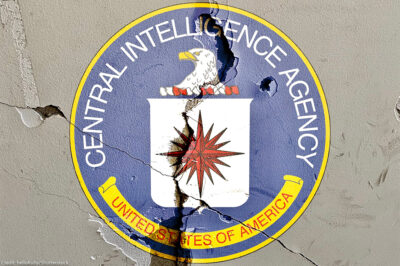Three Cities Offer Latest Proof That Face Recognition Doesn't Work, ACLU Says
Group Criticizes Plan to Force Technology On U.S. Allies
FOR IMMEDIATE RELEASE
NEW YORK- The American Civil Liberties Union today made public a confidential report showing the failure of face-recognition technology at Boston’s Logan Airport, saying that the report as well as evidence from two other cities confirms that the technology does not work well enough to be an effective security tool.
The new evidence comes at a time when the United States is pressuring its allies to put face-recognition data into the passports they issue for their own citizens. The 27 countries whose citizens don’t need visas to enter the U.S. must begin issuing passports with biometric data by October 2004, which according to The New York Times will include face recognition data.
“It is shocking that the U.S. is strong-arming other nations into adopting face recognition technology despite mounting evidence that it doesn’t work,” said Barry Steinhardt, Director of the ACLU’s Technology and Liberty Program.
According to the Logan report, which was written by an independent security contractor, “the number of system-generated false positives was excessive, and as a result, the operator’s workload is taxing and strenuous, requiring constant undivided attention and periodic relief, which amounts to a staffing minimum of two persons for one workstation.”
“We are unsurprised to learn that yet another real-world test of face recognition technology has found it to be a dud,” said Carol Rose, Executive Director of the ACLU of Massachusetts, which obtained the Logan report under the state’s public records law. “We hope our airport won’t be diverting any more scarce security resources into this flawed surveillance scheme.”
Police in Tampa, Florida, meanwhile, announced late last month that they were discontinuing the use of face recognition technology, saying, “it’s just proven not to have any benefit to us.” And in Virginia Beach, Virginia, the other town that has deployed the technology, police conceded that the system has yet to match a single person to any of the up to 30,000 mug shots it is capable of storing. The police nevertheless maintained that the system works.
“If the system caught someone, they’d say it worked,” said Kent Willis, Executive Director of the ACLU of Virginia. “But they haven’t caught anyone, and they still say it works. Just what would it take for them to realize they’re wasting money on this?” The ACLU of Virginia has filed a Freedom of Information Act request today in an attempt to gain information on the performance of the system there.
“It is often said that this technology is ‘evolving’ or ‘not yet mature,'” Steinhardt noted. “But there is no guarantee that face-recognition technology will ever work. Faces change and are hard to measure. It may be that the concept is just fundamentally flawed – that face recognition is a 21st-century version of the notoriously unreliable lie detector, which defenders have been promising for decades will work any day now.”
The Boston airport agency, Massport, at first refused the ACLU’s request under the open-records law to release the Logan report, which was written in July 2002 and includes the label: “Warning: this document contains sensitive security information.” But according to a letter from Massport, the agency then checked with the federal Transportation Security Administration, which gave permission for the report to be released.
The report notes that one test system initially relied upon photographs that were “blurred and difficult to process,” which had the effect of “dramatically distorting performance results” and had to be replaced by a new, “quality set” of photographs. That raises questions about the system’s utility against terrorists, Steinhardt said. “Terrorists aren’t exactly eager to sit for brightly lit, well-composed photographic portraits by the U.S. government. Low-quality shots may be all we will ever have.”
“What shouldn’t be lost in all the details and debate about face-recognition technology,” Steinhardt added, “is one devastating fact: even as face-recognition systems threaten our privacy, they offer only the illusion of security.”
Stay Informed
Every month, you'll receive regular roundups of the most important civil rights and civil liberties developments. Remember: a well-informed citizenry is the best defense against tyranny.


